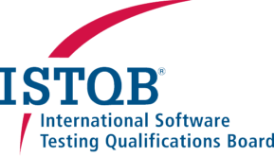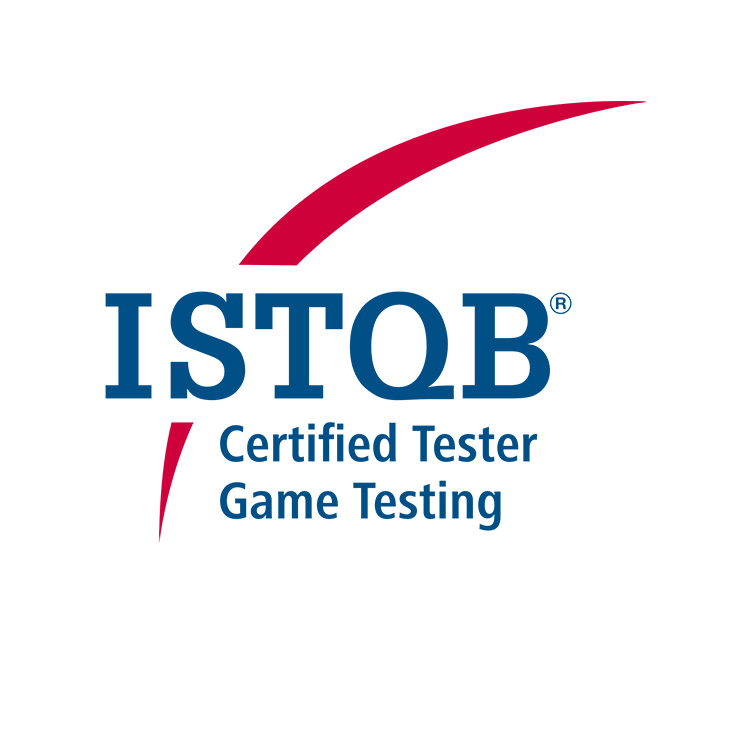Certified Tester Game Testing (CT-GaMe)
Overview
The ISTQB® Game Testing certification focusses on the understanding and skills needed to perform and manage testing on all levels in game projects. It covers the basic concepts of video and game testing as well as how to determine risks and goals for gaming software. It includes conceptually designing, implementing and executing game software tests, approaches to games testing (Game Testing Mechanics, Sound Testing, Graphics Testing and Localization) and recognizing games testing tools.
Audience
The Certified Tester Game Testing certification is aimed at professionals who have achieved in-depth testing experience and who would like to acquire specific competence for testing game software. It is also appropriate for junior testers who are just starting in the testing profession and who would like to know more about the tester’s role when developing game software. Experienced testers who need more understanding and knowledge about how to perform and manage testing on all levels in game projects will also find this certification beneficial. These professionals include people who are in roles such as testers, test analysts, test consultants, test managers, acceptance (UAT) testers, and other video game development roles.
This CT-GaMe certification may also be appropriate for anyone who wants a deeper understanding of software testing in the video gaming world, such as project managers, quality managers, software development managers, business analysts, IT directors, and management consultants. Those involved in the development and production of high-performance hardware such as PCs, mobile and gaming consoles will also benefit from this certification.
To gain this certification, candidates must hold the Certified Tester Foundation Level certificate and have sufficient practical experience. Please contact an ISTQB® Member Board or Exam Provider to determine the specific practical experience criteria.
Content
ISTQB® Certified Tester – Game Testing (CT-GaMe)
Specificity of Game
Testing
Game Testing Basics
Typical Roles of the Game Development
Team
Testing Activities throughout the Game Software Development
Lifecycle
Testing Game Mechanics
Game Mechanics
Approaches to Testing
Game Mechanics
Graphics Testing
Principles and
Concepts of Game
Graphics
Approaches to Testing
Graphics in Game
Products
Graphics Test
Execution
Tools Support for Graphics Testing
Sound Testing
Features of the Sound Content of the Game Product
Types of Defects in
Sound Content
Approaches to Testing Sound Content in Game
Products
Sound Test Execution
Tools Support for
Sound Testing
Game Level
Testing
Game Level Design
Principles and
Concepts
Approaches and Execution of Game
Level Testing
Tools Support for Game Level Testing
Game Controllers
Testing
Principles and
Concepts of Game
Controllers
Approaches to Testing Controllers in Game
Products
Tools Support for Game Controllers
Testing
Localization Testing
Principles and Concepts of
Localization Testing
Types of Localization
Defects and their
Causes
Localization
Testing
Approaches and
Execution
Tools Support for Localization Testing
Exam Structure
- No. of Questions: 40
- Passing Score: 26
- Total Points: 40
- Exam Length (mins): 60 (+25% Non-Native Language)
Business Outcomes
Individuals who hold the ISTQB® Certified Tester- Game Testing certification should be able to accomplish the following business outcomes:
- Describe basic concepts of video games and game software testing
- Determine risks, goals and game software requirements under the needs and expectations of stakeholders
- Conceptually design, implement and execute basic game software tests
- Know the approaches to game software testing and their purpose
- Recognize the tools supporting game testing
- Determine how testing activities align with the software development lifecycle and reduce the cost of developing and publishing video games
More Information
Training is available from Accredited Training Providers (classroom, virtual, and e-learning). We highly recommend attending accredited training as it ensures that an ISTQB® Member Board has assessed the materials for relevance and consistency against the syllabus.
Self-study, using the syllabus and recommended reading material, is also an option when preparing for the exam.
Holders of this certification may choose to proceed to other Core, Agile, or Specialist stream certifications.


